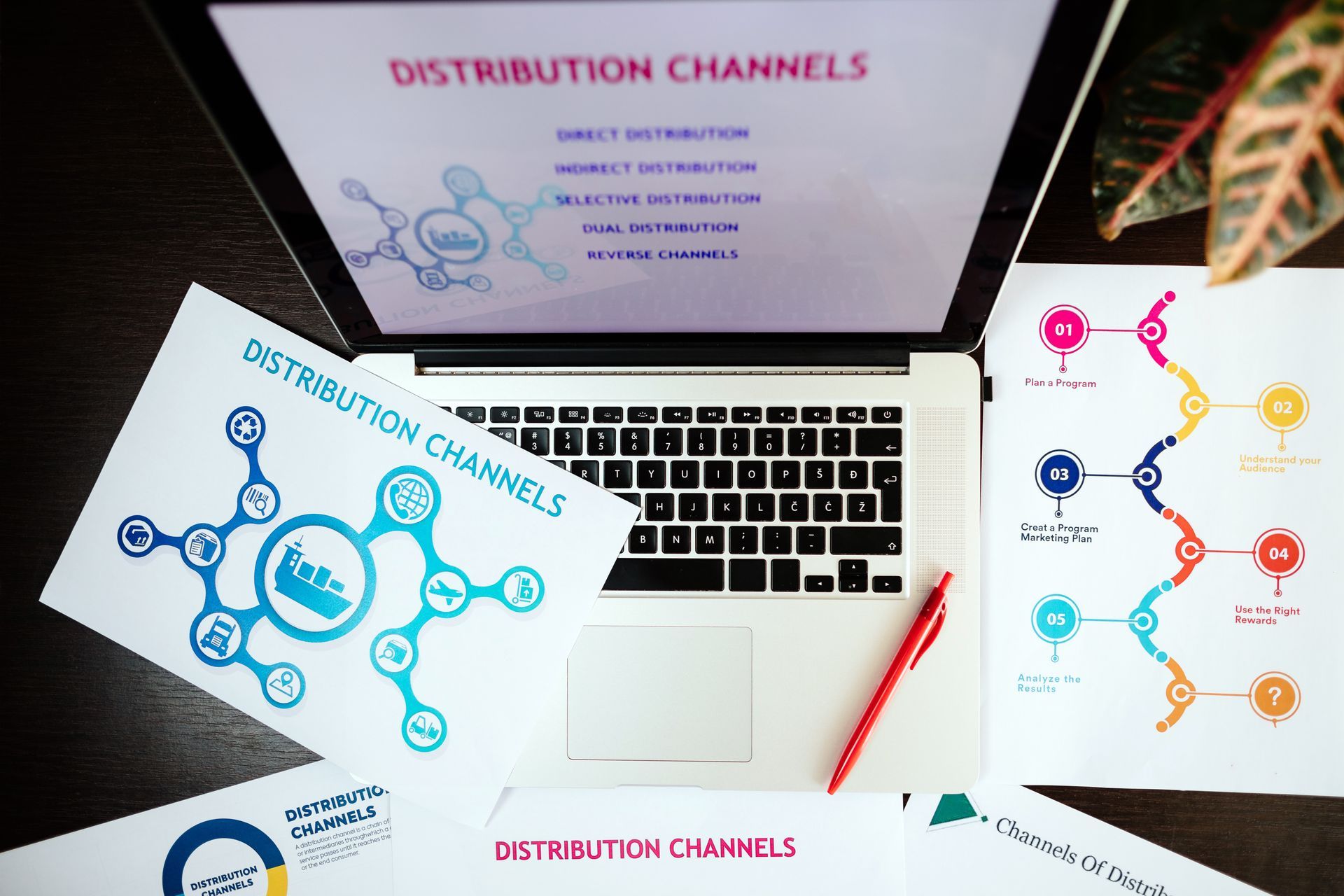Future of Marketing Data Platforms: AI, Privacy & Personalization
This is a subtitle for your new post

The marketing landscape is changing fast. This is thanks to AI, privacy worries, and the push for personalized customer experiences. By 2023, companies will spend over $100 billion on data analytics to keep up.
LayerFive is leading this change. They help brands get the most out of their data. With top-notch Marketing Data Platforms, businesses can improve their marketing and cut costs related to data privacy.
Key Takeaways
- The future of marketing is heavily reliant on AI and data analytics.
- Privacy concerns are driving changes in how consumer data is handled.
- Personalization is becoming a key differentiator for brands.
- LayerFive is at the forefront of providing innovative solutions.
- Marketing Data Platforms are critical for optimizing marketing performance.
The Evolution of Marketing Data in the Digital Age
Businesses now handle marketing data in a whole new way thanks to digital tech. Old-school marketing has been replaced by smarter, data-focused strategies. These use marketing technology to understand and use lots of consumer data.
From Traditional to Digital: A Data Revolution
The move from old to new marketing has brought a big change in data. Now, big data lets marketers see more about what people like and do. Some big changes include:
- The growth of digital channels and devices
- New tools for collecting and analyzing data
- The rise of social media and how it changes how people interact
The Rise of Multi-Channel Marketing Ecosystems
Marketers today work in a world where people see brands in many places. This world is both full of chances and challenges. Marketers must find real people and figure out where their money goes. Using marketing technology well is key to success, helping businesses work together and make smart choices.
Understanding Today's Marketing Data Landscape
The marketing data world is full of pieces that don't fit together well. This makes it hard for marketers to give customers what they want. Billions of dollars are lost because of this mess, as marketers try to make sense of all the data.
The Fragmentation Challenge
Data is spread out all over the place, making it hard to see the big picture. This mess makes it tough for marketers to understand their customers fully.
Data Silos and Their Impact on Marketing Effectiveness
Data silos are a big problem caused by this mess. When data is stuck in one place, it's hard to share or use it together. This can make marketing campaigns fail and hurt the bottom line.
- Inconsistent customer data across platforms
- Inability to track customer journeys effectively
- Wasted resources due to duplicated efforts
The Real Cost of Disconnected Data
Disconnected data costs more than just money. It also makes it hard for marketers to give customers what they want. But with AI marketing and data integration, they can overcome these hurdles and succeed.
The Cost of Data Inefficiency in Modern Marketing
Data inefficiency in marketing is more than just wasted ad spend. It affects a company's bottom line and its place in the market.
Data inefficiency can cause big financial losses. Wasted Ad Spend: The Billion-Dollar Problem is a big issue in today's marketing. Billions of dollars are lost each year because of bad targeting and poor tracking.
Wasted Ad Spend: The Billion-Dollar Problem
Bad data management means ads are not used well. This wastes a lot of money. It also makes marketing campaigns less effective.
Attribution Challenges in a Cookie-Less World
The move to a cookie-less world makes tracking harder. Marketers find it tough to see how their ads work. This makes it hard to know which ads are successful.
ChallengeImpactSolutionWasted Ad SpendReduced ROASImproved targetingAttribution ChallengesInaccurate conversion attributionAdvanced attribution modelingCompliance PenaltiesFinancial and reputational damageRobust data compliance measures
Compliance Penalties and Brand Reputation Risks
Data inefficiency can lead to big fines and harm a brand's image. Not following data rules can cost a lot and hurt a brand's reputation.
Our solutions help improve marketing and save money on data privacy. We offer a full plan to tackle these problems.
What is a Marketing Data Platform?
Marketing Data Platforms (MDPs) are a new way to manage data. They help marketers deal with the problem of scattered data.
An MDP helps marketers understand their data better. It gives a single view of how customers interact across different channels. This makes advertising more targeted and improves how we connect with customers.
Core Components and Functionality
The main parts of an MDP include:
- Data ingestion and integration capabilities
- Advanced data processing and analytics
- Data visualization tools
- Identity resolution and customer profiling
These parts work together to give a full picture of customer behavior. They help make data-driven decisions and personalized marketing strategies.
How MDPs Differ from DMPs and CDPs
MDPs are different from Data Management Platforms (DMPs) and Customer Data Platforms (CDPs). MDPs can unite consumer identities and track how they interact. DMPs deal with anonymous data, while MDPs use identifiable customer data for better targeting and personalization.
The Evolution from Data Warehouses to Intelligent Platforms
The move from old data warehouses to smart platforms like MDPs is needed. Modern MDPs use AI and machine learning for better insights and automated processes. This makes marketing campaigns more effective and boosts ROI.
Our Marketing Data Platform solves these issues. It unifies consumer identities, improves tracking, and follows GDPR/CCPA rules. This gives marketers a strong tool for today's challenges.
AI's Transformative Role in Marketing Data Analysis
Marketing data analysis has entered a new era with AI. This era brings unprecedented precision and personalization. At LayerFive, we help brands unlock their consumer data's full power with AI-driven insights.
Machine Learning for Pattern Recognition
Machine learning algorithms lead AI's impact on marketing data analysis. They can process huge amounts of data to find patterns humans can't see. This helps marketers understand consumer behavior and preferences better.
Key applications of machine learning in marketing include:
- Identifying high-value customer segments
- Predicting churn rates and developing retention strategies
- Optimizing marketing campaigns for better ROI
Predictive Analytics and Consumer Behavior Forecasting
Predictive analytics is key in AI marketing data analysis. It uses historical data and current trends to forecast future consumer behavior. This lets marketers adjust their strategies to meet changing consumer needs.
The benefits of predictive analytics include:
- Anticipating changes in consumer demand
- Personalizing marketing messages for individual consumers
- Improving the effectiveness of marketing campaigns
Natural Language Processing for Consumer Insights
Natural Language Processing (NLP) focuses on understanding human language. In marketing, NLP analyzes consumer feedback, sentiment, and preferences from various channels. This includes social media, reviews, and customer service interactions.
Sentiment Analysis and Brand Perception
Sentiment analysis, a key NLP application, shows how consumers feel about a brand. By analyzing sentiment, companies can spot areas for improvement. They can then adjust their branding strategies.
Conversational Marketing Intelligence
Conversational marketing intelligence uses NLP to analyze consumer conversations. This includes chat logs, social media interactions, and other feedback.
By using AI-driven marketing data analysis, businesses can better understand consumer behavior. They can improve personalization and drive more effective marketing strategies.
The Privacy Paradox: Balancing Personalization with Protection
Marketers face a tough challenge today. They need to make marketing personal while keeping data safe. This balance is harder to keep as data privacy laws get stricter.
GDPR, CCPA, and the Evolving Regulatory Landscape
The GDPR and CCPA have changed how marketers use data. These laws push for clearer data use and more control for consumers. Marketers must use data analytics to stay compliant and keep marketing strong.
First-Party Data Strategies in a Privacy-First World
Marketers are now focusing on first-party data. This means getting data directly from customers. It builds trust and helps with marketing, thanks to data integration.
Privacy-Enhancing Technologies (PETs)
PETs are key in today's privacy-focused world. They protect data while helping marketers get insights. Tools like differential privacy are becoming more common. They help marketers balance personalization with privacy, meeting legal standards and running successful campaigns.
Our solutions help improve marketing and reduce costs related to data privacy. This way, businesses can succeed in the privacy-first era.
Identity Resolution: The Foundation of Effective Marketing
Finding and tracking customers across different devices and platforms is a big challenge in marketing today. It's hard to know who the real customers are and which marketing channels they come from.
Cross-Device Tracking Challenges
People use many devices to interact with brands. Cross-device tracking helps marketers see the whole customer journey.
For example, a customer might look at products on their phone, compare prices on their laptop, and buy on their tablet. Without good cross-device tracking, it's hard to know which marketing channel got the sale.
Creating Unified Customer Profiles
Identity resolution helps create unified customer profiles. These profiles are key for personalizing experiences. By combining data from different sources, businesses get a full picture of their customers.
BenefitsDescriptionEnhanced PersonalizationTailor marketing efforts to individual customer preferencesImproved AttributionAccurately attribute sales to the correct marketing channelsIncreased Customer LoyaltyFoster stronger relationships through relevant interactions
Ethical Considerations in Identity Management
Creating unified customer profiles is good, but it also raises ethical considerations. Marketers need to balance personalization with customer privacy.
By being open about data use and following laws like GDPR and CCPA, businesses can earn customer trust.
Attribution Models for the Modern Marketer
Billions are wasted because of unclear attribution modeling. This shows we need better models. As customer journeys get more complex, old models don't give us the insights we need.
Moving Beyond Last-Click Attribution
The last-click model gives all credit to the last touchpoint before a sale. It misses the many interactions that lead to a sale. Marketers need models that can spread value across all touchpoints.
Multi-Touch Attribution in Complex Customer Journeys
Multi-touch models give a detailed view of how marketing efforts lead to sales. They show how each touchpoint affects a customer's path. This helps data-driven decision-making and better budget use.
AI-Powered Attribution: The Next Frontier
AI and machine learning in attribution models are a big step forward. These models can handle huge amounts of big data to spot trends and predict behavior. This lets marketers adjust campaigns in real-time, boosting performance tracking and ROI.
In conclusion, evolving attribution models is key for marketers today. By using advanced models, they can better understand their marketing efforts. This leads to clearer insights and smarter decisions.
Data Integration: Connecting the Marketing Technology Stack
Effective data integration is key to a successful marketing strategy today. With many marketing tools and platforms, connecting them is more important than ever.
API Ecosystems and Data Portability
The API ecosystem is at the core of data integration. It lets different apps talk to each other smoothly. APIs make data easy to move between systems, helping marketers see a complete picture of customer interactions.
Real-Time Data Synchronization Across Platforms
Keeping data up-to-date in real-time is essential. It lets marketers act fast on customer behavior and preferences. This is critical for targeted advertising, where timely messages make a big difference.
The Role of iPaaS in Marketing Data Orchestration
Integration Platform as a Service (iPaaS) is key for managing marketing data. It offers a single place to connect different data sources and apps. With iPaaS, marketers can improve data flow and get better insights into customer behavior.
Our Marketing Data Platform helps bridge these gaps. It unifies customer identities, improves attribution, and ensures data privacy. This way, businesses can have a more unified and effective marketing strategy.
Personalization at Scale: The Ultimate Marketing Goal
Personalization at scale is now a must for brands. They use marketing data platforms to create unique experiences for each customer. At LayerFive, we help brands unlock their consumer data's full power.
To achieve personalization, marketers use advanced strategies and technologies. One key approach is Segment-of-One Marketing Strategies. This means tailoring marketing to individual customers based on their preferences and behaviors.
Segment-of-One Marketing Strategies
Segment-of-one marketing goes beyond traditional demographic-based marketing. It uses data analytics to create targeted campaigns. These campaigns resonate with individual customers, improving engagement and conversion rates.
Dynamic Content Optimization
Dynamic Content Optimization is another key element. It uses real-time data to adjust content, making it relevant and appealing to each user. This approach significantly improves customer experiences and drives sales.
Behavioral Triggers and Automated Journeys
Behavioral Triggers and Automated Journeys are essential for personalization at scale. They set up automated responses to customer behaviors. This creates timely and relevant interactions, fostering loyalty and repeat business.
Contextual Personalization Beyond Demographics
Contextual personalization goes beyond basic demographics. It uses real-time data and behavioral insights for highly relevant experiences. This ensures marketing efforts are not only personalized but also contextually appropriate.
Balancing Automation with Human Touch
While automation is key for scaling personalization, balancing it with human touch is also vital. Adding empathy and understanding to automated processes keeps a personal connection with customers. This enhances the overall experience.
In conclusion, achieving personalization at scale needs a multifaceted approach. It involves advanced marketing data platforms, data analytics, and strategic marketing practices. By using segment-of-one marketing, dynamic content optimization, and behavioral triggers, businesses can deliver tailored experiences. These experiences drive engagement and loyalty.
Emerging Technologies Reshaping Marketing Data Platforms
Emerging technologies are changing marketing data platforms. They help businesses make better decisions and offer personalized experiences. Technologies like edge computing, blockchain, and quantum computing are set to change data analysis and customer engagement.
Real-Time Decision Making with Edge Computing
Edge computing is changing how marketing data is processed. It allows for quick decisions at the network's edge, not in a central data center. This makes data processing faster and more efficient, great for real-time personalization and quick customer service.
Transparent Data Transactions with Blockchain
Blockchain is being looked at for its ability to make data transactions clear and safe. It uses a decentralized ledger to ensure data is correct and provides a clear history. This is key as data privacy laws get stricter.
The Future of Data Analysis with Quantum Computing
Quantum computing could change data analysis by doing complex tasks fast. It could give deeper insights into what customers want and help make marketing better. But, it's just starting out.
TechnologyImpact on Marketing Data PlatformsPotential BenefitsEdge ComputingReal-time data processingFaster response times, improved personalizationBlockchainSecure and transparent data transactionsEnhanced data integrity, compliance with regulationsQuantum ComputingAdvanced data analysis capabilitiesDeeper consumer insights, more effective marketing strategies
By using these new technologies, businesses can improve their marketing and save on data privacy costs. As marketing tech keeps changing, staying up-to-date is key for businesses to use data well and grow.
LayerFive's Marketing Data Platform: A Complete Solution
In today's fast-changing digital marketing world, LayerFive's Marketing Data Platform is a standout. It helps businesses manage and analyze their marketing data better. It tackles the problems of scattered data and meeting privacy rules.
Unified Identity Management
LayerFive's platform offers unified identity management. It lets businesses see their customers in one place. This is done by combining customer data from many sources.
Benefits of Unified Identity Management:
- Deeper customer insights
- Better personalization
- More accurate data
Enhanced Attribution Capabilities
The platform also has enhanced attribution capabilities. Marketers can now see how their campaigns work across different channels. This is key for making marketing better and boosting ROI.
Attribution ModelDescriptionBenefitsLast-Click AttributionAttributes conversion to the last clickSimple to implementMulti-Touch AttributionAttributes conversion across multiple touchpointsProvides a complete view of the customer journey
Privacy Compliance by Design
LayerFive's Marketing Data Platform is built with privacy compliance in mind. It helps businesses follow rules like GDPR and CCPA. It has tools for making data anonymous, managing consent, and handling data subject rights.
Case Studies: ROI Improvement and Cost Reduction
Many businesses have seen big gains in ROI and cost cuts with LayerFive's platform. For example, a top e-commerce brand boosted its conversion rates by 25%. This was thanks to the platform's unified identity management and better attribution.
The platform works well with other marketing tools and systems. This means businesses can use what they already have while getting the most from LayerFive's advanced data tools.
Implementation Strategies for Different Business Models
Understanding your business model is key to a successful marketing data platform. Whether you're in e-commerce, B2B, or an enterprise, the right strategy boosts ROI and builds trust with customers.
E-commerce and Shopify Integration
E-commerce sites, like those on Shopify, need integration. A marketing data platform that works with your e-commerce site gives real-time data on customer behavior. This leads to personalized marketing and better customer experience.
By using big data, e-commerce sites can fine-tune their marketing. This improves performance tracking and boosts sales.
B2B Marketing Data Optimization
B2B marketers deal with longer sales cycles and more decision-makers. A marketing data platform offers insights into customer interactions and preferences. This helps target marketing efforts and track performance better.
Enterprise-Level Data Orchestration
For big companies, data orchestration is essential. A marketing data platform can bring together data from different sources. This gives a clear view of the customer, leading to more effective marketing and better ROI.
By using advanced analytics and big data, big companies can grow and engage customers better.
Choosing the right strategy for your business model unlocks your marketing data platform's full power. This drives ROI and builds trust with customers.
Conclusion: The Future of Data-Driven Marketing
The future of data-driven marketing looks bright. New technologies and solutions will make targeted advertising more efficient and effective. As marketers deal with complex consumer data, data visualization will become even more important. It will help businesses make smart choices and increase their return on investment.
LayerFive is dedicated to helping businesses use their marketing data to its fullest. They make marketing data easier to understand, so every dollar counts. LayerFive focuses on giving actionable insights and building trust with consumers. They aim to change the marketing data world.
As the marketing world keeps changing, businesses need to stay ahead. They should use the latest technologies and solutions. This way, they can get the most out of their marketing and succeed in the long run.
FAQ
What is a Marketing Data Platform (MDP) and how does it differ from other data management platforms?
A Marketing Data Platform is a tool for marketers to manage and analyze data better. It's different from Data Management Platforms (DMPs) and Customer Data Platforms (CDPs). It can unite consumer identities and track how they interact with brands.
How does AI enhance marketing data analysis?
AI changes marketing data analysis by giving deeper insights into what customers like. It uses machine learning to spot patterns in big data. Predictive analytics help guess what customers might do next.
What are the challenges posed by data fragmentation in marketing?
Data fragmentation creates data silos, hurting marketing efforts. It's not just about money; it also makes it hard to offer personalized experiences to customers.
How can marketers balance personalization with data protection?
Marketers can balance personalization with data protection by using first-party data. They should also use privacy tech and follow rules like GDPR and CCPA.
What is identity resolution, and why is it critical for effective marketing?
Identity resolution creates one customer profile by tracking them across devices and platforms. It's key for personal experiences and tracking how well marketing works.
How can businesses achieve personalization at scale?
Businesses can personalize at scale by using segment-of-one marketing. They should also optimize content dynamically and use automated journeys.
What are the emerging technologies reshaping marketing data platforms?
New tech like edge computing, blockchain, and quantum computing is changing marketing data. Edge computing lets for quick decisions, and blockchain makes data transactions clear.
How can LayerFive's Marketing Data Platform help businesses?
LayerFive's platform offers unified identity management and better tracking. It also ensures privacy. This helps businesses increase ROI, cut costs, and offer tailored experiences.
You might also like:




